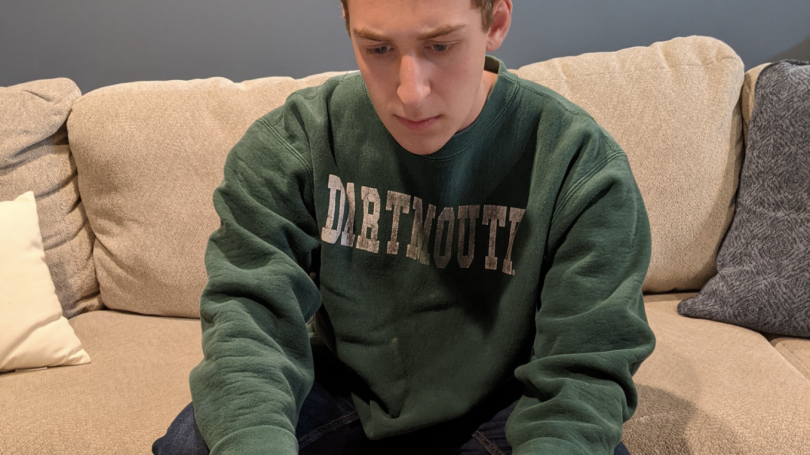
- Public Policy
- Leadership
- Funding
- News & Events
- About the Center
Back to Top Nav
Back to Top Nav
Back to Top Nav
Back to Top Nav
Sam O'Brien 22 interned at 1000 Days Fund during the 2021 winter term. The following is an excerpt from his internship report.
In the winter of 2021, I interned with The 1000 Days Fund, a non-governmental organization (NGO) based out of Indonesia. The 1000 Days Fund promotes a variety of programs aimed at combatting the epidemic of stunting in children that live in Indonesia’s rural region. Stunting is defined by entities like the WHO as when a child’s height is more than two standard deviations below what it ought to be for their age. Children are most at risk during the first 1000 days from conception to birth (where The 1000 Days Fund gets its name). Although the most visible symptom may be small stature, there is also a wide range of physiological effects that make stunting much more detrimental to children afflicted by it. An average IQ deficit of around 10 points is chief among these, but frequent sickness due to a weakened immune system is not far behind. In rural Indonesia, stunting occurs as a result of nutritional deficits coupled with poor health and sanitation infrastructures.
To combat stunting, The 1000 Days fund employs a holistic approach that uses an anti-stunting toolkit to educate local health volunteers, empower parents, and build bridges with community leaders. I was an intern with the research and development wing of the organization, which meant that my main responsibilities included compiling existing stunting research for the educational materials and developing new strategies to raise the issues in donor circles. During my internship, I was responsible for the research and creation of the organization’s 2020 Annual Report (for donors), health policy brief (for government/health collaborators), and introductory slide presentation (for potential partners). The most positive part of my internship was my part in connecting The 1000 Days Fund to the firm Pro Bono Analytics for further data analysis on how effective their programs are. This was a significant moment for me because I know that global health organizations are constantly looking for the most effective way to create change but do not always have the budget to do extremely detailed statistical analysis. I took it upon myself to find an entity that could conduct analysis with the raw numbers. I also really enjoyed weekly conversations with my supervisor, Zack Peterson, and his approach to projects in different islands in Indonesia. I also found it very interesting how the funding for the projects was tailored for the specific island and it stressed consistency, which I think is often missing in global health programs.
As someone who wants to work in global health, the experience was invaluable for learning how research is implemented as health policy, how development NGOs go about researching their interventions, and how funding those interventions is conducted. The experience reinforced my desire to do global health-related research while I still have the academic power of Dartmouth behind me.
I would like to acknowledge the grant I received from Dartmouth’s Rockefeller Center, without which my participation in this internship would not have been possible.
The Rockefeller Internships Program has funding for Dartmouth undergraduate students to help defray the cost of living expenses associated with a full-time, unpaid, leave-term internships in the fields of public policy, public affairs, and social entrepreneurship.